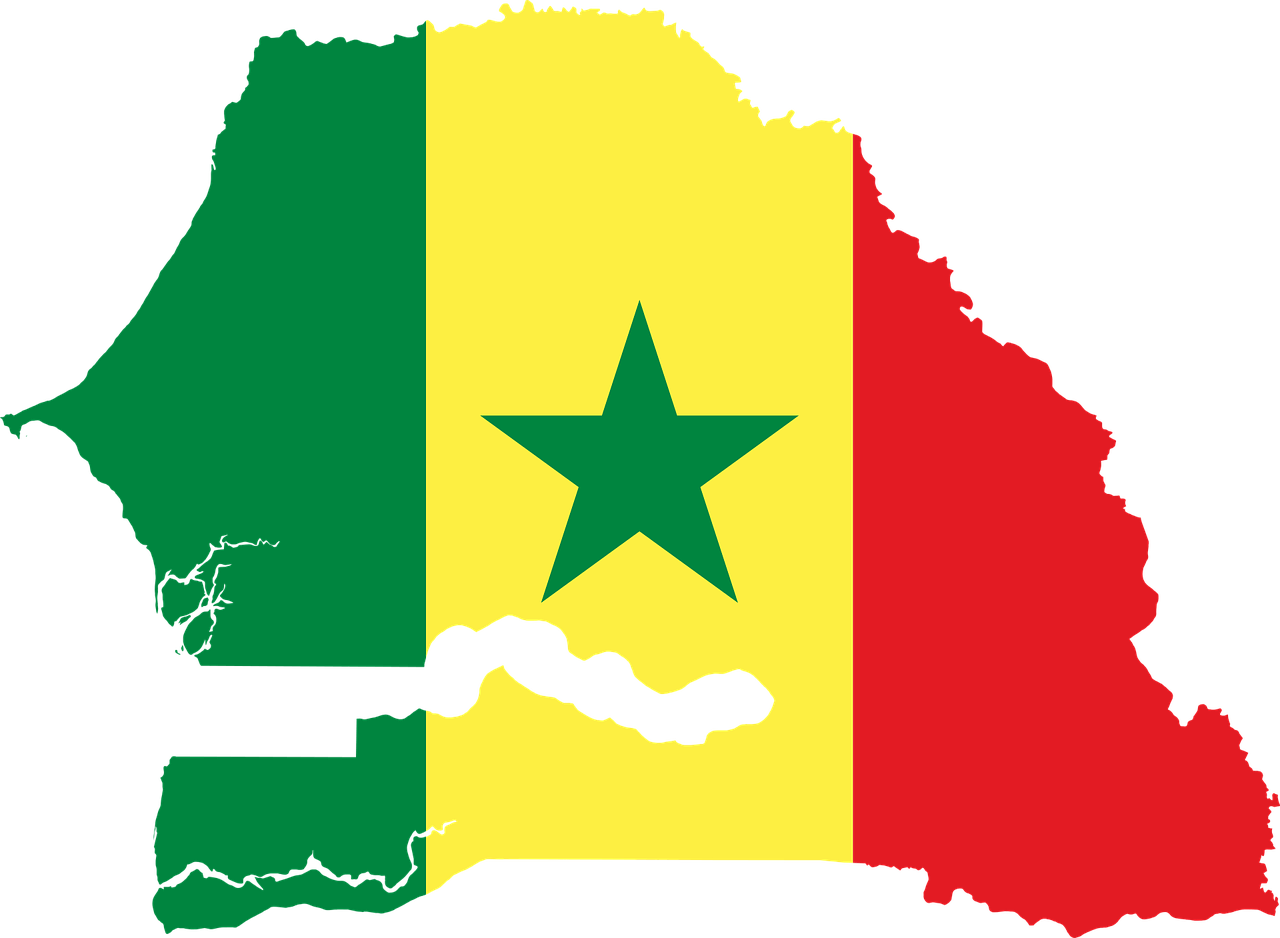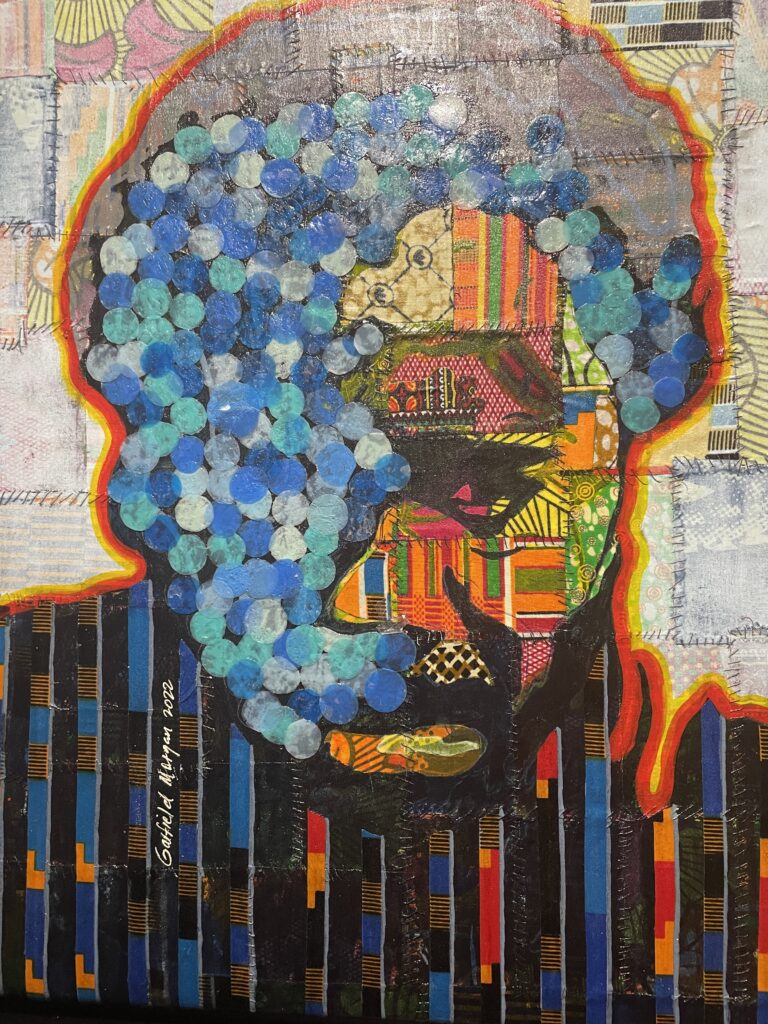Senegal rescues her democracy

The election of 44-year-old Bassirou Diomaye Faye as president in Senegal has brought a sense of general relief to West Africa. Faye’s election gives hope to many, in a West African subregion which is currently viewed as the foyer of military coups, terrorist attacks and the flails that have finally come to be accepted as synonymous with Africa.
The previous years were marked by disappointment when democracy took a blow in that country. The fourth Senegalese president Macky Sall adopted attitudes of a genuine dictator working to defend the interests of France. His presidency followed the status quo and, at some points, fears settled in when the subjugation to the former colonial master got coupled with the quasi-eradication of the opposition.
The scenario resembled a clash between the old class of pro-France politicians and partisans on the one hand, and the camp of the young buoyant nationalists led by the then opposition leader Ousmane Sonko. Former president Sall lost much of his credibility when he descended heavily on the opposition as presidential elections drew nearer. Sonko was slapped with a jail sentence based on accusations that ultimately proved to be wrong. But, the calculations of the old pro-France class had become too glaring: the main aim was to prevent any victory of the opposition parties and safeguard the continuity of the prevailing leadership style.
Some of the features that have defined Senegal for decades, precisely since independence in 1960, are the smooth enviable models of democratic transitions and no history or experience of coups d’etat or civil war. Despite the hard times that the economy would plunge into, once in a while, the country was the citadel of political and social stability, and it had a historic distinction as a pole of excellence in education and cultural traditions. Other traits that somehow work as innate features of the country are the pride and emulation of French lifestyle and ways, a habit that the Senegalese succeed in blending with their mother tongues and endogenous practices like ways of dressing, staple dishes, and more. Macky Sall’s regime was the most blatant epitome of submission to France. He and his political allies were all educated in France, maintained tight and harmonious relationships with the political ruling class in France. But that Francophile inclination was disappointing the Senegalese masses that were suffering while the political elite were openly concerned with the retention of their own comfort, a phenomenon that calls for the preservation of pro-France ties and friendships.
The youngest president in the history of Senegal and his mentor, respectively Bassirou Faye and Ousmane Sonko, were known to be the leaders of the most vibrant opposition to former president Sall and his camp. The two opponents (now president and vice president) are charismatic, popular, and known for a preoccupation with accountability, transparence, nationalism and opposition to exploitation by France which the newly elected president calls economic enslavement. Also, they promote national companies. Many mention that as tax inspectors, the two leaders of the Pastef (their party) perfectly knew the ways and manners which enabled the pillage of the oil and other precious natural resources by France and her local cronies. These former tax inspectors are proud of their local (Senegalese) training and work experience, unlike their opponents, the party that was in power.
Macky Sall certainly despised that political attitude that would disrupt the “routine” in the country. The Senegalese youth had grown “sick and tired” of the neocolonial leadership style. That accounted for the clashes and violence that got hold of the country months before the elections, and lives were lost. Both Sonko who is generally referred to as a “firebrand politician” and Faye, who is Sonko’s top lieutenant were in jail (the latter was charged with contempt of court and defamation of magistrates) when candidates for the succession to Macky Sall were to file their intention to contest and start campaigning. Conditions and circumstances made it impossible for Ousmane Sonko to play any direct and significant role in this context that was also a crucial moment in the history and political life of the country. But the opposition got a chance when Bassirou Faye, although in detention, managed to file as a candidate. That unleashed much hope in the camp of those calling for a change. The main slogan of the partisans of Sonko and Faye was “voting for Bassirou Faye means voting for Sonko”.
The aspirations of the Senegalese opposition and class of anti-France nationalists materialized when the campaign of the two popular spokespersons of the Senegalese new class (that aggressively aim to break the suffocating subjugation to France and the control of the economy of the country by France) ended in Faye’s victory. He appointed his 49-year-old mentor as prime minister after he was sworn in as the fifth president of Senegal. This duo represents the constellation of the aspiration, views and voices of the new or current Senegalese majority in a country where 60 of the population are below 25 and unemployment is dire. Sonko and Faye face several challenges. How effective will their crusade against French influence and imperialism be? How will the newly elected president show that the affairs of the country are being steered by him, and not by his mentor and prime minister Ousmane Sonko? I do not see that as an important factor, since the political alliance between Sonko and Faye is profound, aged, deeply rooted and obvious. I have no doubt that the main policies in Senegal will be determined by these two, with a keen consideration of the demands, opinions and wishes of the majority, that class of young Senegalese who are calling for a change, a new era. Faye’s lack of experience in in public governance could be a weakness, as some observers contend, but his supporters believe he can successfully lead the country.
What cannot be questioned is the fact that the election of Bassirou Faye restores the rule of democracy in Senegal and the novel factor is the power that civil society gained. The persecution that former president Macky Sall visited on them led them to determine new strategies and skills for survival. The Senegalese political scene is no more dominated by the old elite of conservative Francophiles. The youth have reached a level of maturity that compels everybody to take their presence and robust capacity into consideration.
Moussa Traoré is Associate Professor at the Department of English of the University of Cape Coast, Ghana.







Two president ,One country,according to voters voting for Faye’s is voting for Sonko because Sonko was not allowed to be a canditate due to some reasons.Today’s things are going well between the two president known as Faye’s and Ousmane’s because they closed to one another and people starting appreciate What they are doing for the well being senegal.Now the future question that Senegalese must pose or Ask is that ,if somes misunderstanding happened between both .How their government or their democracy will look like.
Will there be able to correct that disparities and kept their patriotism.
As the former master is around , what must be the reaction of both great leader to avoid cofusing them to another and get the control of senegal as it was in Macky Sall and his camp Time.
With the New generation we have hope that African countries will get the real Independence one day. So NEVER GIVE UP TO ACHIEVE YOUR GOAL.
JUBILATING WITH SENEGAL: OUR PASSION AND COMPASSION CALLS FOR A CAUTION
I am moved to quickly comment on this masterstroke by one of the tireless pens of Pan-Africanism, Musa Traore. My love for African poetry and in particular Negritude poetry has drawn me so much into the political trajectory of Senegal after the presidency of prolific Pan-African poet, Leopard Sedar Senghor.
I have been very enthusiastic about the transition of power from one democratically elected president to another in Senegal. I am jolly drunk that what felt like a stumbling block to democracy in Senegal by Macky Sall could not materialized. Again, with all the political machinations by Sall, the Senegalese people, especially the constitutional court, have all demonstrated that they are not as toothless dragons as the outdated ECOWAS. The hand of destiny and the work of the political gods that brought Bissirou Diamaye Faye to the Senegalese presidency is equally worth celebrating. The fairytale of Faye and Sonko is reminiscent of Nelson Mandela’s journey from Robin Island to the South African presidency post apartheid in 1994. I am aware that the world and particularly subscribers of Pan-Africanism are overjoyed with much expectation for Faye especially his crack on French imperialism. Where I diverged with Traore in this piece is the historical antecedent of the Senegalese presidents since independence in 1960. It is this historical trajectory which must caution us as we celebrate Senegal and Faye. On the night of independence, the Senegalese were brimming with hope considering how Senghor had been instrumental in the nationalist struggle for independence. However, with all the euphoria, by the late 70s and early 80s, Senghor, like most first presidents of post independent Africa, had become a dictatorial demigod. The clamouring for change by the Senegalese people brought Abou Diop. His presidency revived those who had given up on the ability of the African to manage his own affairs. He ignited hope and brought back waning smiles. But by the late 90s and early 2000s, Diop had become a pale shadow of himself.
Once again, the Senegalese people went into the political market in search of a president and the search fell on one of the well-known political faces in Senegalese political history, Abdoulaye Wade, a man who had been part of the nationalist struggle for independence and one of the politicians that had contested the presidency four times. Wade’s presidency was greeted with ecstasy. He was seen as experienced, knowledgeable and had lived through the good, bad and ugly days of Senegalese administration. Wade started well as to the applause of many Senegalese and the international community when he reduced the presidential term from seven years to five and initiated poverty alleviating policies. Like the trajectory of Senegalese and most African rulers, Wade changed the tenure of the presidency again and after failing out with his then Prime Minister, Macky Sall, Wade dubiously had his way to contest the election for the third term in 2012, losing after run-off to Macky Sall.
Macky Sall, a 50-year-old in 2012, became the first president in Senegal to be born after independence. His inaugural speech was captivating. He saw his win over Wade not as an opportunity for vendetta but a period for getting the best for Senegal. It is this same Macky Sall, hailed in the principal streets of Dakar in 2012, who became the political monster by employing all machinations to strangle opposition parties including wrongly jailing Sonko, Faye and a host of other opposition leaders. It is this same Sall who postponed general election indefinitely until the constitutional court stepped in.
So we can continue to celebrate Faye with immeasurable hope but the history of Senegalese politics couple with his own indebtedness to his mentor and now Prime Minister, Ousmane Sonko, his patriarchal cabinet, having only four women Ministers out of 35 make me cautious of what is ahead. If Faye is to succeed, he has a responsibility to be guided by the antithesis of the inaugurations of all four presidents before him and their later days.
Long Live Pan-Africanism.
The hope of the people of Senegal is restored with the election of the youthful president. This is a wakeup call for the octogenarian presidents who are bereft of ideas but unwilling to relinquish power. The youth of Africa must emulate the resistance of Faye and his mentor, for it is only through resistance that power can be won. Aluta continua….